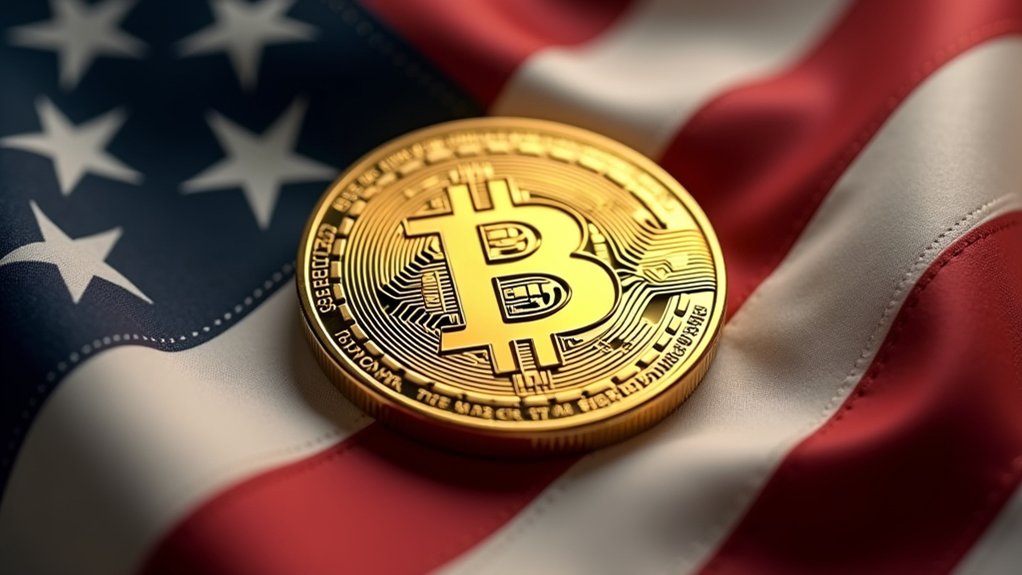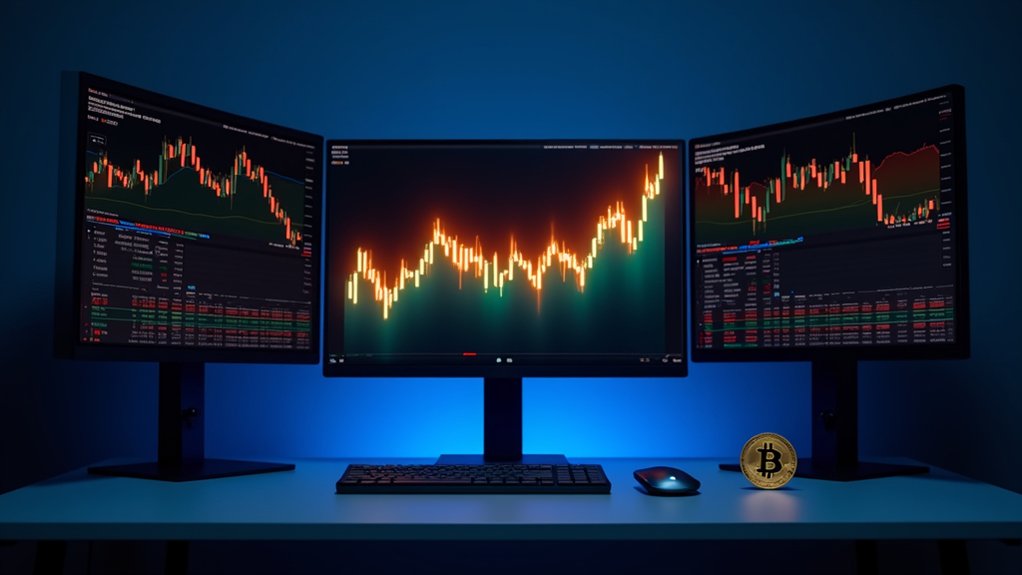Altcoins are cryptocurrencies that aren't Bitcoin, offering different features and uses in the digital currency world. These alternatives emerged in 2011 with Namecoin and have grown to over 14,000 different types today. They include payment tokens like Litecoin, utility tokens like Ethereum, and even meme-based coins like Dogecoin. While altcoins often provide faster transactions and lower fees than Bitcoin, they typically come with higher volatility and unique risks. Understanding the various types of altcoins reveals their potential impact on the future of digital finance.

What exactly makes altcoins different from Bitcoin? The term "altcoin," which combines the words "alternative" and "coin," refers to any cryptocurrency that isn't Bitcoin. Since Namecoin's launch in 2011 as the first altcoin, over 14,000 different altcoins have emerged. They were created to address Bitcoin's limitations and offer new features that Bitcoin doesn't have.
Altcoins come in several forms, each serving different purposes. Payment tokens like Litecoin focus on making transactions faster and cheaper. Utility tokens, such as Ethereum, let users access specific blockchain services. Security tokens represent ownership in real-world assets, while stablecoins like Tether maintain a steady value by being tied to traditional currencies or assets. The ICO boom of 2017 led to a massive token surge. There's even a fun category called meme coins, like Dogecoin, which got their start from internet jokes and memes.
One of the main attractions of altcoins is that they often improve upon Bitcoin's original design. Many altcoins offer faster transaction speeds and lower fees than Bitcoin. Some provide better privacy features to keep users' identities hidden. Others include smart contract functionality, which lets people create automated agreements without middlemen. These innovations have made altcoins useful in various industries, from finance to supply chain management. Ethereum has become particularly significant as the second most popular cryptocurrency in the market. The value of many altcoins is heavily influenced by mining costs and the expenses associated with their production.
However, investing in altcoins isn't without risks. They're typically more volatile than Bitcoin, which means their prices can change dramatically in short periods. Some altcoins don't have many buyers and sellers, making them harder to trade quickly. There's also uncertainty about how governments will regulate these cryptocurrencies in different countries. Unfortunately, the altcoin world has seen its share of scams and fake projects that have hurt investors. Many projects suffer from lack of liquidity in the marketplace, making it difficult for investors to exit their positions.
The technology behind altcoins can also be vulnerable to security problems. While blockchain technology is generally secure, individual altcoin projects might have weaknesses that hackers can exploit.
Despite these challenges, altcoins continue to attract interest from people who want to explore alternatives to Bitcoin. They offer unique features, potential benefits, and different ways to use blockchain technology. As the cryptocurrency market evolves, altcoins remain an important part of the digital currency landscape, providing options beyond Bitcoin for those interested in digital assets.
Frequently Asked Questions
How Do I Protect My Altcoin Investments From Potential Scams?
Investors protect their altcoin holdings by doing thorough research before investing. They check the project team's background, review whitepapers, and examine GitHub development activity.
They're using secure hardware wallets and enabling two-factor authentication on all accounts. They don't share private keys, and they're careful with public Wi-Fi.
Smart investors follow official project channels and stay alert for red flags like promised guaranteed returns.
Which Exchanges Are Safest for Trading Altcoins?
Kraken stands out as one of the safest exchanges for altcoin trading, with no successful hacks since 2011.
Binance.US has proven its security through SOC 2 certification and cold-wallet storage features.
SwissBorg maintains a clean security record and offers robust protection measures.
These exchanges prioritize user safety through features like two-factor authentication, SSL encryption, and secure cold storage.
They've built reputations for keeping customer funds and data safe.
Can Altcoins Completely Replace Bitcoin in the Future?
While altcoins have made significant technological advances and offer diverse features, they're unlikely to completely replace Bitcoin.
Bitcoin's established position as "digital gold," its strong network effect, and widespread brand recognition give it unique staying power.
Though altcoins now make up over 60% of the crypto market cap and offer faster transactions and smart contracts, they're more likely to coexist with Bitcoin rather than replace it entirely.
How Do Taxes Work When Trading Between Different Altcoins?
Trading between different altcoins is considered a taxable event by the IRS.
When someone trades one cryptocurrency for another, they'll need to calculate any gains or losses based on the coins' market value at the time of the trade.
The IRS treats these trades like property exchanges.
It doesn't matter if no actual dollars were involved – the trade itself creates a tax situation that needs to be reported on tax returns.
What Determines Whether an Altcoin Project Will Succeed or Fail?
Several key factors influence an altcoin's success or failure. A strong development team and strategic partnerships help build credibility.
Clear utility and innovation matter – the project needs to solve real problems better than existing solutions. Active community engagement keeps users interested and involved.
Market performance and regulatory compliance are also essential. Without these elements working together, an altcoin project might struggle to survive in the competitive crypto market.





